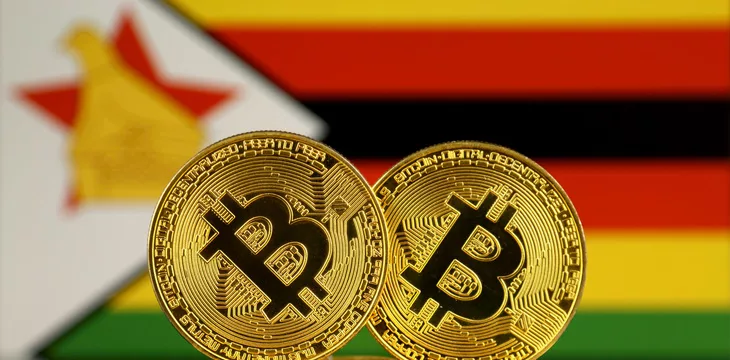|
Getting your Trinity Audio player ready...
|
Zimbabwe sold $40 million worth of its gold-backed digital currency, the country’s central bank has revealed. The Reserve Bank of Zimbabwe (RBZ) plans to conduct a second sale despite the International Monetary Fund (IMF) warning.
RBZ first introduced the digital currency in April 2023 as the bank’s latest effort to rein in the country’s hyperinflation. Zimbabweans can exchange their local dollars for the tokens to preserve their value and protect against exchange rate volatility, RBZ Governor John Mangudya said at the time.
As local outlets report, the bank has sold 14 billion Zimbabwean dollars’ worth of the tokens (approximately $40 million). In a statement, the governor revealed that banks participating in the program received 135 applications for the purchase of the tokens, 132 in the local currency and three in U.S. dollars. The tokens are backed by 139.6 kilograms worth of gold held by the top bank.
“The issuance of the gold-backed digital tokens is meant to expand the value-preserving instruments available in the economy and enhance divisibility of the investment instruments and widen their access and usage by the public,” Mangudya said.
The tokens come with a minimum vesting period of 180 days in the first phase. In the second phase, the RBZ will allow holders to use them to make payments at merchant stores and for person-to-person transfers.
“It, therefore, means that the gold-backed digital tokens would be used both as a means of payment and a store of value,” the governor stated.
Zimbabwe sold the gold-backed digital tokens in defiance of a warning by the IMF. This month, an IMF spokesperson cautioned the Southern African country against the tokens, which it said was a band-aid solution that papers over the cracks.
“A careful assessment should be conducted to ensure the benefits from this measure outweigh the costs and potential risks including, for instance, macroeconomic and financial stability risks, legal and operational risks, governance risks, cost of forgone FX reserves,” the spokesperson told Bloomberg.
As Zimbabwe defies the IMF, others like Argentina have caved to the Washington-based organization’s demands. Argentina is now cracking down on digital assets in line with one of the conditions for a $45 billion loan.
Zimbabwe has struggled with its currency for over a decade now. In 2009, it adopted the U.S. dollar after its local currency became effectively worthless following years of hyperinflation. A decade later, in 2019, it reinstated the Zimbabwean dollar, but it has struggled to control inflation. This year, the local dollar has lost 40% of its value against the USD, trading at 1,000 on the official platforms. On the street, it goes for as much as 2,000.
While the local dollar is the legal tender, most businesses continue to demand payments in the greenback. With the U.S. dollar unavailable or trading at a heavy premium, Zimbabwean businesses have had to become creative to survive the situation. Many offer small items for change, including cheese, pens, juice boxes, and food items.
According to the Wall Street Journal, some even print their own “money.” These businesses issue scraps of paper indicating the change owed, which customers can use to make future purchases at their outlets. The challenges are plenty; the scraps are non-fungible and can only be used at one outlet, they get easily worn out, and more.
CoinGeek Conversations with Catherine Lephoto: How blockchain is transforming health and education in Africa

 07-28-2025
07-28-2025 





